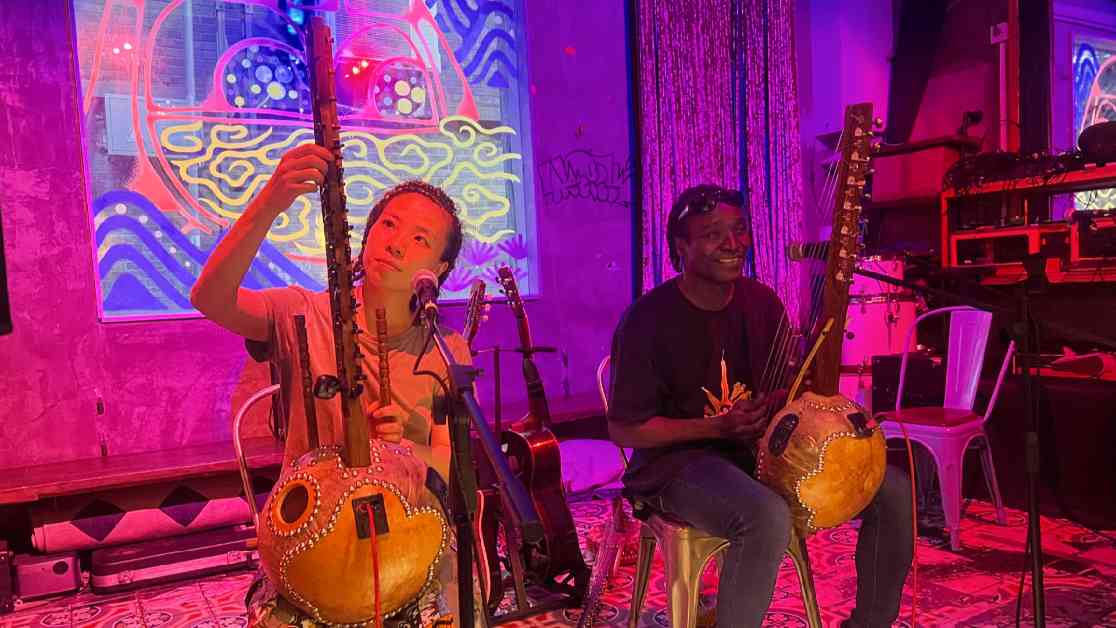Exploring the Musical Exchange Between China and Africa: Kora and Kamale Ngoni Instruments
In August 2024, the enchanting sounds of the kora and kamale ngoni instruments filled the air in Beijing as Liu Chen and Adama Yalomba Traore mesmerized audiences with their musical talents. Liu, originally from China, discovered the kora during a work trip to West Africa, where she fell in love with the stringed instrument of the Mandinka culture. It was during her time in Mali that she encountered the kamale ngoni, a similar yet distinct instrument played by her Malian husband, Adama. Together, they create a harmonious blend of melodies that showcase the rich cultural heritage of both China and West Africa.
Discovering the Kora and Kamale Ngoni
Liu Chen’s journey into the world of West African music began serendipitously when a friend introduced her to a kora teacher during her time in West Africa. The mesmerizing sounds of the kora captivated Liu, leading her to explore more traditional instruments during her travels in Senegal and Mali. As she delved deeper into the world of kora music, Liu found the instrument to be a versatile and expressive medium for conveying different musical styles. She explained, “In Mali, it sounds like classical music. It’s very calm and rich. When I listen to some Gambia or Senegal albums with the kora, I find it is more like folk music. So even though it’s the same instrument, every kora player has their own character and style.”
The Craftsmanship of the Kora and Kamale Ngoni
Both the kora and kamale ngoni instruments are crafted from similar materials, with the calabash playing a central role in their construction. The calabash, a versatile gourd used in various aspects of West African culture, serves as the resonating chamber for the instruments, contributing to their unique sound. Additionally, wood and animal skin are crucial components in creating the neck and strings of these instruments, adding to their distinct tonal qualities. Liu highlighted the significance of these materials in shaping the sound of the kora and kamale ngoni, emphasizing their cultural importance in West African music.
Promoting Cultural Exchange Through Music
The musical duo’s visit to China in August marked a significant step in their mission to promote cultural exchange through music. Conducting workshops and performances across different cities, Liu and Adama shared their passion for the kora and kamale ngoni with budding musicians and enthusiasts. Reflecting on their experience, Liu expressed her admiration for the dedication and enthusiasm of Chinese students eager to learn about West African music and instruments. She shared, “They are motivated to learn; they have a passion for this music and these instruments.” By fostering collaborations and sharing their expertise, Liu and Adama hope to inspire a deeper appreciation for West African music in China.
As they continue to collaborate and create music together, Liu looks forward to exploring new avenues for artistic expression. With plans to compose music for the kora and potentially infuse elements of Chinese music into their repertoire, she aims to further bridge cultural divides through their musical fusion. Liu shared her aspirations, stating, “From next year, I want to compose some music. I will try to interpret some Chinese music, if the sounds work well.” This innovative approach to blending musical traditions reflects their commitment to transcending boundaries and celebrating cultural diversity.
In a world characterized by diversity and interconnectedness, Liu and Adama’s partnership serves as a testament to the transformative power of music in fostering cross-cultural understanding. By embracing their unique backgrounds and sharing their musical talents with audiences worldwide, they embody the spirit of cultural exchange and collaboration. Liu eloquently summarized their mission, stating, “Tours and concerts are a kind of exchange because people come to listen to what you are presenting. It’s important to have exchanges between different cultures, so we can learn more about each other and have less misunderstandings.” Through their harmonious melodies and shared passion for music, Liu and Adama exemplify the universal language of music that transcends borders and unites hearts.

















